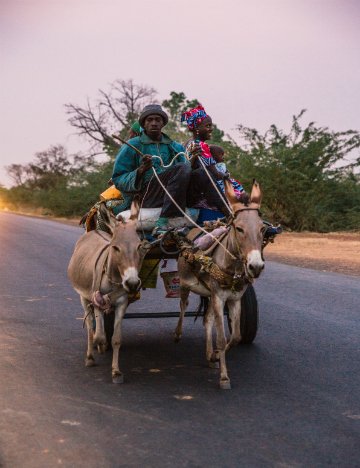Brooke celebrates world radio day
13 February is World Radio Day. A day dedicated to the celebration of the wonder of radio. For many of us the concept of a life without radio is inconceivable, it would mean not listening to the latest songs, our regular programmes or our favourite DJs but in developing countries a radio can be a lifeline and a crucial way of implementing change.
For Brooke teams all over the world the use of radio is vital. It helps communicate key equine welfare messages to a wider audience and harder to reach communities who may not be able to travel regularly to meet with Brooke vets and representatives.
In Kenya Brooke partner with KENDAT to run a weekly national radio show ‘Mtunze Punda Akutunze’ (‘Look after your donkey and it will look after you’) which also reaches neighbouring Uganda, Tanzania and Ethiopia. The broadcast provides information and advice to animal owners about the importance of good equine welfare and how best to care for working animals. Rewards and prizes are given to exemplary owners who demonstrate a good understanding of animal healthcare.
Local focus groups were initially organised to gain feedback from owners about the usefulness of the radio shows. In one discussion of 113 young handlers the group said they had learnt many beneficial lessons from the broadcasts, like not using harmful whips and instead using voice commands. Brooke teams also reported that in regions such as Lari and Mwea, the amount of wounds seen on donkeys had visibly reduced as a result of improved handling and care, as emphasised in the radio programmes.
Brooke’s main aim when utilising radio broadcasting is to change attitudes and behaviour through educating communities.
In Pakistan the working there are 4.75 million horses, donkeys and mules. The main welfare issues include overloading, slit nostrils, lameness and worm infestation. To tackle these, Brooke conducted an awareness study where teams carried out face to face questionnaires with owners to collect data on their what owners knew about their own animal’s welfare, such as their dietary and water requirements, wound management and the use of common practises including nostril slitting, which is believed to improve breathing.
Brooke followed up these questionnaires with regular regional radio messages, broadcast in the local language and giving advice on the recommended treatment of working horses, donkeys and mules. After a month of the messages being transmitted three times a day the surveys were repeated. Now, over three quarters of owners said they would offer their animal water four or more times a day compared with less than a third before the shows were broadcast. Additionally, 16% of owners had learnt that nostril slitting was harmful and did not help breathing, so would stop carrying out the practise. The original questionnaire had also found a lot of owners treated their animal’s wounds using ash, engine oil and household disinfectants, but the radio messages meant that after just a month of transmissions, awareness of saline and antiseptic had increased.

More recently, Brooke West Africa and their local partner UGAN started an innovative new project which links community radio stations to equine owners in Sokone and Jokalante.
Following a workshop held by Brooke and UGAN in Sokone in July 2016, a local bylaw was passed in November 2016 which requires cart drivers to use reflectors on their donkey or horse drawn carts when travelling. The police needed help spreading this message, so approached UGAN.
The Brooke and UGAN team produced a radio show on road safety and community members then had the opportunity to use the voice mailbox for requests such as clarifications on the bylaw or for veterinary assistance. Owners were given a voice, and the chance to ask questions about animal welfare too. As a result, road accidents involving carts have significantly decreased.
In many of the countries Brooke works in, radio is the main source of information for the residents, so we are taking full advantage. Key equine welfare messages broadcast to remote and rural communities will improve the welfare of working horses, donkeys and mules all over the world. So celebrate radio this World Radio Day and think of all the ways it is changing the lives of equines everywhere!
